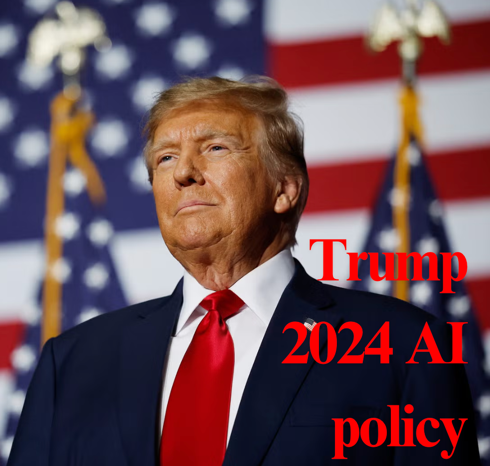Trump’s Historical Approach to AI and Technology
During Trump’s first term, he pushed for U.S. technological leadership with the American AI Initiative, aiming to secure America's position in AI. The focus was heavily on competing with China and limiting their access to critical tech resources. However, the Trump administration placed less emphasis on AI regulation, which many saw as essential for balancing innovation with ethical concerns.
Key Points:
- Overview of the American AI Initiative’s role in strengthening U.S. tech.
- Countermeasures against China’s growing AI capabilities.
- Minimal focus on AI safety and ethical guidelines, especially compared to the Biden administration’s approach.
Renewed Focus on AI Innovation Over Regulation?
Trump's administration may look to scale back on Biden’s regulatory measures, like the AI Bill of Rights and the 2023 executive order on AI safety standards. This deregulatory stance could allow AI companies to innovate more freely, though the absence of strict safety guidelines may heighten operational risks.
Key Points:
- Possible rollback of Biden-era safety protocols for AI.
- Emphasis on self-regulation by AI companies without heavy oversight.
- Potential response by companies aiming to balance innovation and public expectations.
AI Competition with China: Intensifying the Tech Race
Trump’s foreign policy will likely continue to target China’s AI advancements. Anticipated policies may include further restrictions on exporting AI technology to China, along with domestic incentives to keep R&D operations in the U.S.
Key Points:
- Enhanced restrictions on AI technology exports to China.
- Potential incentives for U.S.-based R&D in AI.
- Impacts on global companies like Google and Microsoft, who may need to pivot to align with U.S. geopolitical goals.
Implications for Major AI Companies
If Trump’s policies lean towards deregulation and competition, AI leaders such as OpenAI, Microsoft, and Google could accelerate product releases and cutting-edge research. However, companies focused on ethical AI might face challenges reconciling growth with responsible practices.
Key Points:
- Opportunities for companies like Microsoft and OpenAI to push forward AI deployment.
- Challenges for ethical AI companies balancing growth with responsible practices.
- Possible public-private collaborations in AI advancement.
Future Trends: What’s Next for AI Policy and Governance?
Trump’s policies could spur rapid AI innovation, but the reduced regulatory focus might leave ethical and safety concerns unaddressed. Companies will need to proactively address these issues to meet investor and public expectations.
Key Points:
- Importance of voluntary safety frameworks to replace formal regulations.
- Rising importance of public perception of AI companies.
- Strategies to future-proof against potential regulatory shifts post-Trump’s term.
Conclusion
Trump’s return to office could herald a period of intensified AI innovation and geopolitical competition. While deregulation may accelerate progress, companies will still face pressures to maintain public trust through ethical AI practices.



